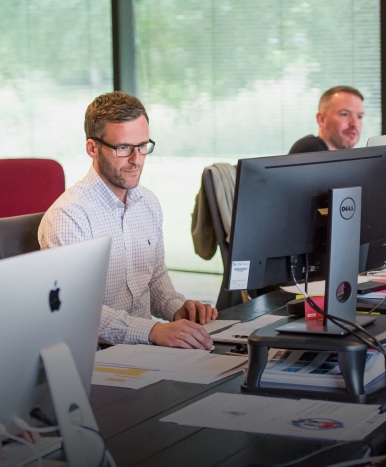
BBC Online Assessment 2025
 62 Tests · 800+ Questions
62 Tests · 800+ QuestionsExplore BBC online assessment for Graduates and Professional. Detailed BBC profile, online aptitude tests with solutions and step-by-step explanations, latest news and updates.
About BBC
BBC (British Broadcasting Corporation) is the UK's broadcasting services complex. The Corporation carries out domestic television and radio broadcasting as well as external broadcasting conducted by the BBC World Service. The Corporation is not a state-owned media, but a public body with a Board of Control consisting of 12 Trustees appointed by the Queen.
The BBC is one of only two (along with Channel 4) public broadcasters in the UK. Legally, the BBC operates under the Charter (the charter under which the British Broadcasting Corporation exists). The BBC is a statutory corporation without shareholders.
Broadcasting House is the BBC headquarters located at Portland Place and Langham Place in London. The first radio broadcast from the building took place on 15 March 1932 and the official opening of the building took place two months later, on 15 May.
BBC recruitment process in 2026
- Online application form
One of the first stages of the recruitment process is filling in the application form on BBC Careers website.
The online application form is usually presented as a questionnaire with the option of importing data from a LinkedIn or CV file.
The applicant is required to provide information about work experience, education, skills and other necessary details.
There may be questions both about job preferences (e.g. desired type of employment, country and city of residence) and more personal questions (e.g. race and ethnicity, religion, disability)
- Online tests
The next stage of the BBC recruitment process is an online assessment. The candidate will be sent an email invitation to complete BBC tests.
BBC uses different types of recruitment tests to assess candidates and their suitability for the position they are applying for.
Candidates are most often asked to complete the following tests:
Numerical reasoning tests are standardised psychometric assessment tools that help BBC determine a candidate's ability to work with numbers and graphs, make good decisions and draw conclusions based on numerical or statistical data. The tests simulate the work environment and goals of a prospective employee. Try our Free sample Numerical reasoning test.
Verbal reasoning tests allow BBC to determine a candidate's ability to perceive and analyse verbal information and to draw conclusions. Free sample Verbal tests are available to practice here and here.
Logical (inc. Diagrammatic and Inductive ) reasoning tests are designed to assess the candidate's ability to work with abstract information. BBC Logical assessment may consist of special diagrams, geometric shapes and other lined-up images, where a candidate has to continue the row in a logically correct way. Here you can practice a Free sample Logical test, a Free sample Diagrammatic test, and a Free sample Inductive test.
Situational judgement tests consist of short simulated scenarios that define a working style and assess specific tasks in a working environment. BBC Situational tests are used to assess applicants' competencies, communication skills, motivation, and preferred styles of problem-solving. Try our Free sample Situational judgement test before taking the real one.
Mechanical reasoning tests are designed to assess candidates' critical and abstract thinking skills important for engineering and science-related positions at BBC. Free sample Mechanical test.
- Phone / Video Interview
Successful candidates are invited for a 15-20 min. phone call.
Soft skills are usually assessed during this call by the BBC recruiter.
In some cases, BBC hiring manager may invite you for a video interview (most commonly conducted with HireVue.) For software engineering positions, candidates may be asked to complete a coding challenge (problems on algorithms + take-home challenges.)
- Assessment centre
Successful candidates are invited to visit the nearest BBC headquarters or office.
Candidates will have a chance to personally meet the hiring manager, team leaders and seniors during the assessment day.
BBC may organise a group exercise with candidates as part of the hiring procedure.
- Partner interview
The final stage of the recruitment process.
The candidate will have a chance to meet the hiring manager, department director and/or division lead.
Normally, there is no assessment at this stage.
Candidates are mostly expected to demonstrate soft skills and a desire to join BBC.
Useful BBC links
Loved by people like you
More BBC online tests
We're here to help you
Chances are high that your question is already answered on our FAQ page. If not, feel free to contact us anytime.
 40% OFF
40% OFF